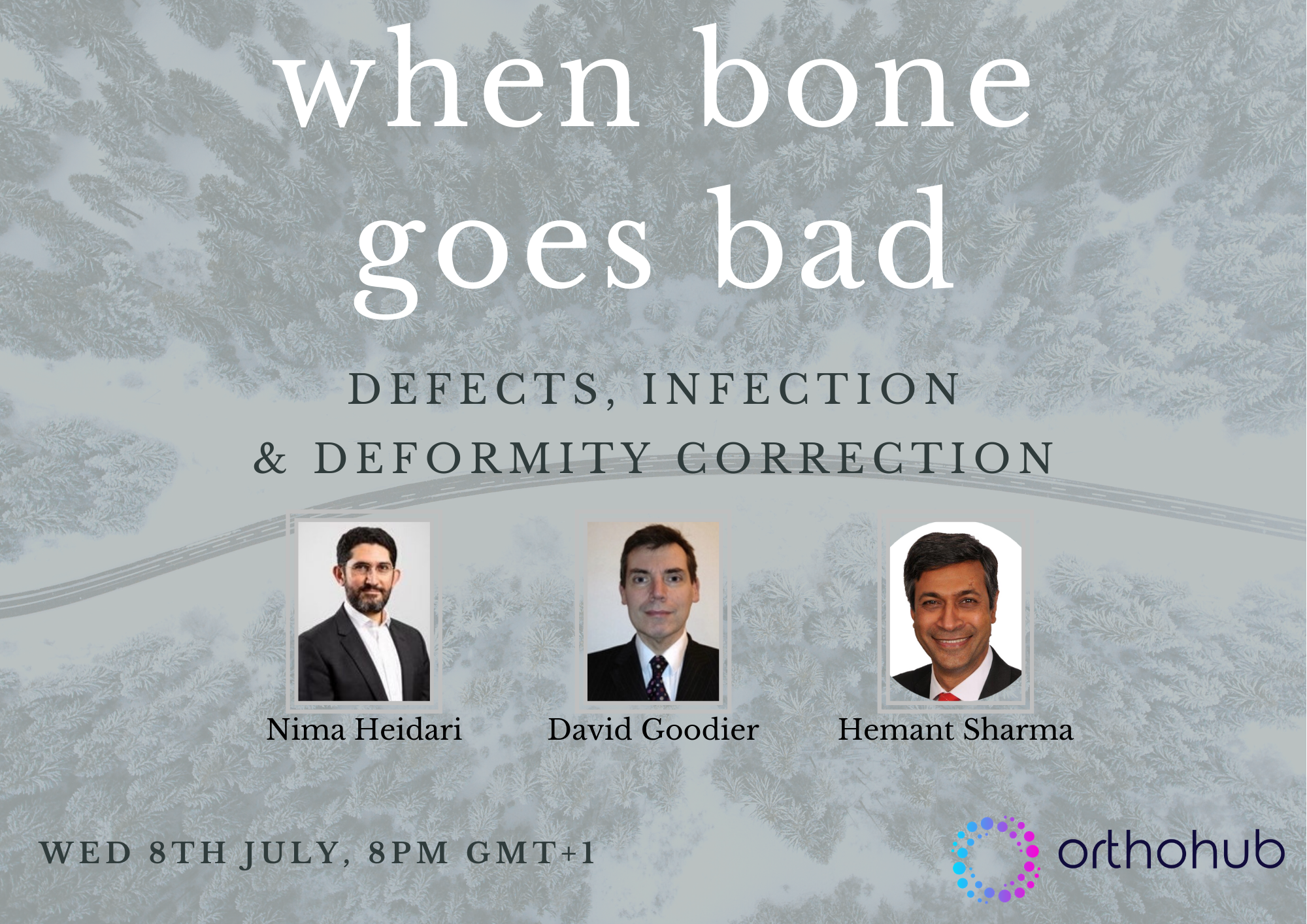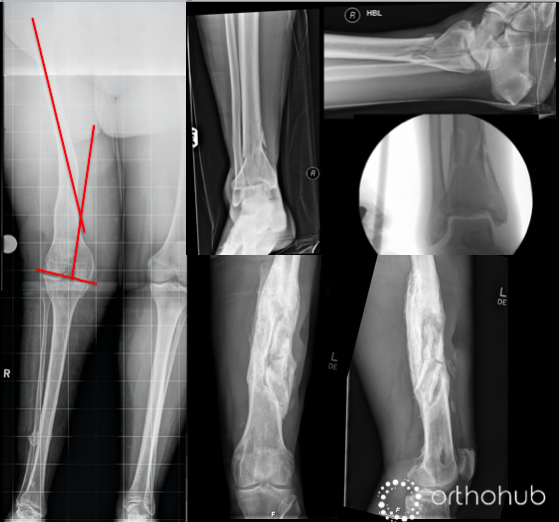orthohub access
Please register for a free orthohub account, or log in to access this content. Your orthohub account will allow you to keep track of your orthohub learning journey. Once you have marked the sections as complete you filled out the feedback for a Royal College of Surgeons England CPD certificate will be generated. You can download this as a PDF instantly. The certificate will also be saved in your orthohub account.
Join our panel for an introduction to limb reconstruction techniques for the general orthopaedic surgeon. This webinar – presented by:
This webinar will be aimed at the general orthopaedic surgeon and trainees. We wish to offer an insight into all aspect of limb reconstruction. The goal of this webinar is to allow you to understand the basic concepts that underpin limb reconstruction surgery.
Our panel will cover bone loss, bone infection and the correction of deformity.
Bone loss; how to assess bone defects, how to mange then in the acute setting, and what are the options for the reconstruction.
Bone infection; who is susceptible, how to assess and diagnose, initial management of acute infection and the management of chronic bone infection.
Deformity correction; from patient assessment through to planning and surgical correction of deformity.
This webinar is targeted at all orthopaedic surgeons; aspiring orthopaedic surgeons (from medical students and physicians associates, all the way through the ranks. This is also be relevant to our allied health professionals.






